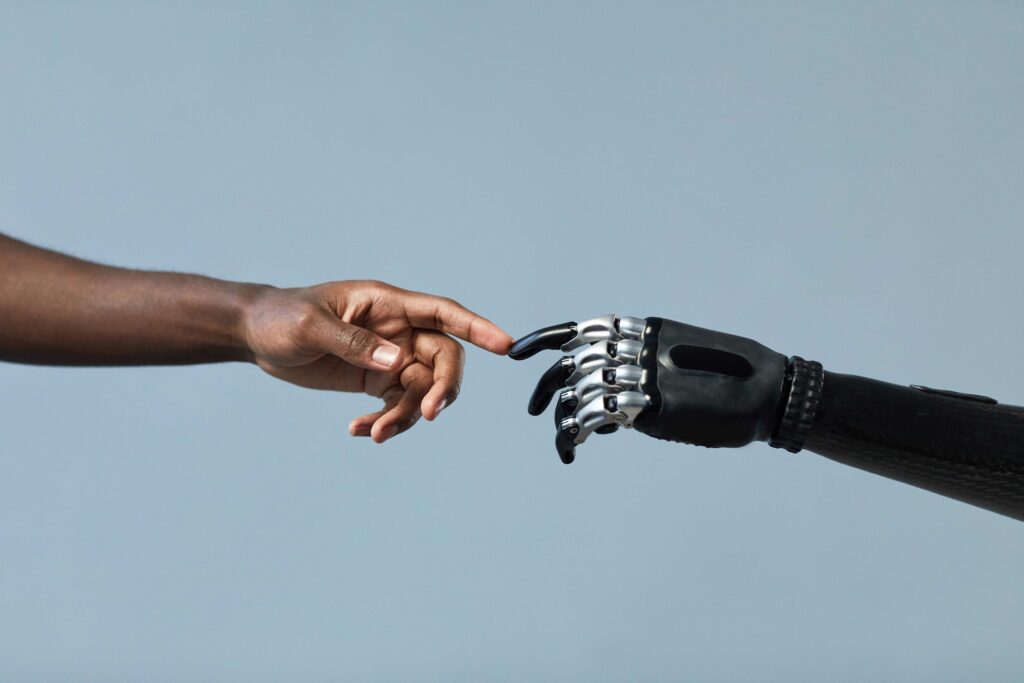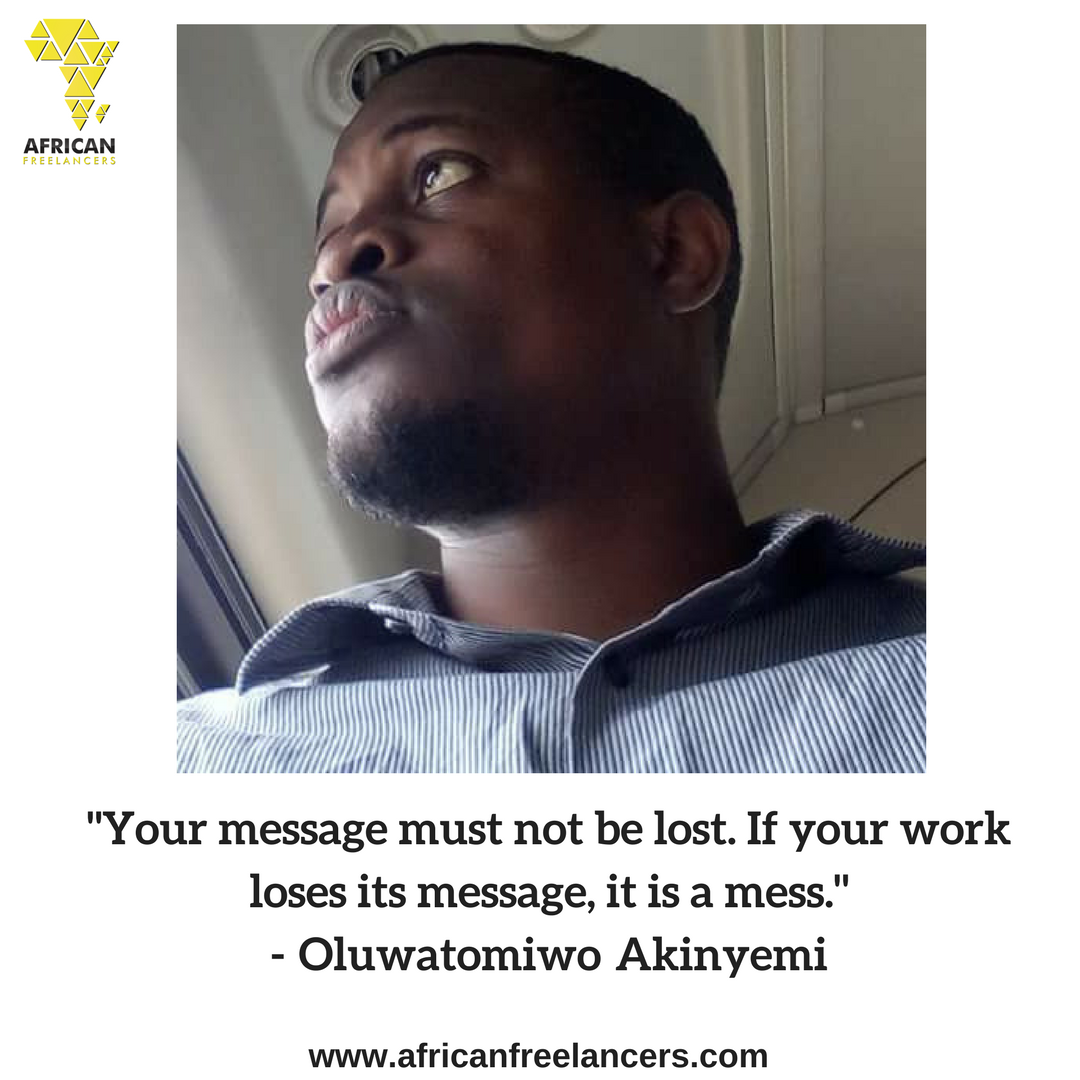In recent years, Artificial Intelligence (AI) has moved from being a futuristic concept to an everyday reality, powering everything from virtual assistants and chatbots to automated writing tools and design software. As AI technology continues to advance rapidly, many workers around the world are beginning to ask the same question: “AI vs Freelancers: Will AI take my job?”
For freelancers in Africa, this question is even more pressing. But with the rise of AI tools that can write articles, design logos, and even code software, there’s growing concern: will these tools eventually replace human freelancers altogether?
In this article, we’ll explore both sides of the debate, looking at how AI could potentially replace freelancers and why that future might not be as near or absolute as some fear. We’ll end with practical advice for African freelancers on how to stay competitive by working with AI instead of being threatened by it.
AI vs Freelancers: Understanding AI and Freelancing
Before we explore whether AI will replace African freelancers, it’s important to first understand what AI is and what freelancing in Africa looks like today.
What is AI (in Simple Terms)?
Artificial Intelligence, or AI, refers to computer systems designed to perform tasks that typically require human intelligence. These tasks can include understanding language, recognizing images, analyzing data, making decisions, and creating content. AI tools don’t have emotions or true creativity, but they’re excellent at quickly processing large amounts of information and following patterns to generate results.
Some everyday examples include:
– Chatbots that handle customer service on websites.
– AI writing tools like ChatGPT or Jasper.
– Design tools like Canva’s Magic Design.
– Voice assistants like Siri or Google Assistant.
AI is not “human,” but it can often mimic certain human tasks. This is where the concern begins for freelancers.
The Connection: Where AI Meets Freelancing
AI is now entering the very fields where many freelancers earn a living. It can write blog posts, design basic graphics, transcribe audio, and analyze data, often faster and at a lower cost than a human can. This overlap raises the concern: if AI can do the same tasks, what happens to the freelancers?
AI vs Freelancers: AI is Replacing Freelancers in Africa
Below are some key reasons AI could replace certain freelance roles in Africa, especially those that rely on repetitive or routine tasks.
1. AI is Faster and More Cost-Effective
One of the biggest advantages of AI is speed. A tool like ChatGPT can write an article in seconds, while an AI-powered design tool can generate a logo in minutes. For clients who want quick turnarounds and lower costs, AI is an attractive alternative to hiring a freelancer.
For example:
– Jasper AI, a popular writing assistant, can generate long-form content in under 10 minutes.
– Canva’s AI tools allow users to create social media graphics, presentations, and websites with minimal effort or design skills.
This means that for basic tasks, AI may replace freelancers, especially those offering services at lower price points without much specialization.
2. Automation of Repetitive Tasks
Many freelance jobs involve repetitive, rule-based tasks like data entry, transcription, customer responses, or basic email copywriting. These are exactly the types of jobs AI is good at automating.
A 2023 report by Goldman Sachs estimated that 300 million jobs globally could be exposed to automation, particularly in administrative and data-driven roles. While not all of these jobs will be eliminated, many will be transformed or require fewer people to manage them.

For African freelancers doing this kind of work, this could mean fewer job opportunities over time unless they upskill or move into more complex tasks.
3. AI is Always Available and Doesn’t Tire
Unlike human workers, AI doesn’t need rest, sleep, or time off. It can work 24/7, process thousands of tasks at once, and deliver consistent output. This gives businesses a reason to adopt AI tools, especially for customer support, content generation, and data analysis.
For instance:
– AI chatbots can now handle up to 80% of routine customer queries without human involvement (according to IBM).
– Tools like Otter.ai can transcribe meetings and interviews in real-time, reducing the need for human transcription freelancers.
4. Scalability for Clients
AI allows clients to scale content, graphics, or services without hiring multiple freelancers. One AI tool can often do the job of several people, especially in content-heavy or admin-heavy projects. For businesses trying to cut costs or grow quickly, this can seem like a logical solution.
While these points show the real potential for disruption, they don’t tell the full story.
AI vs Freelancers: AI isn’t Replacing Freelancers in Africa
While AI is advancing quickly, it’s important not to exaggerate its power. There are still many things it can’t do, especially when it comes to work that requires human judgment, creativity, cultural understanding, and emotional intelligence. Let’s explore the reasons why African freelancers are not being replaced, at least not anytime soon.
1. AI Lacks Creativity and Human Touch
AI can mimic patterns, but it doesn’t have original thoughts. It can remix existing content or follow templates, but it doesn’t truly innovate or bring a unique voice. This is where human freelancers shine.
For example:
– A Nigerian content writer understands how to tailor a message to a Lagos audience with the right slang, tone, and cultural references.
– A freelance designer in Kenya can create visuals that reflect local customs or trends that AI simply doesn’t understand.
Even in fields like storytelling, branding, and video scripting, clients often want a personal, emotional touch—something AI can’t authentically deliver.
2. Cultural and Contextual Understanding
Freelancers in Africa have the advantage of the local context. They understand regional markets, consumer behavior, language differences, and even political and economic trends that shape how products and services are sold.
AI doesn’t know what resonates with a Nigerian audience during election season, or what images might offend a particular group in East Africa. This context-awareness is critical for marketing, journalism, public relations, and social media work.
3. AI Needs Human Supervision
AI tools don’t work without input. Most still require human prompts, editing, and fact-checking to produce quality results. In many cases, AI is a helper, not a replacement.
For instance:
– AI-generated writing often includes factual errors or generic content.
– AI design tools can produce uninspired or inconsistent visuals without a designer’s eye.
This means freelancers who learn to work with AI, not against it, can produce even better, faster, and more polished work.
4. Clients Still Prefer Human Collaboration
Many clients value the relationship they have with a freelancer. They appreciate being able to brainstorm, ask for revisions, and have conversations that lead to better outcomes.
While AI may replace low-value or generic tasks, there is still strong demand for freelancers who offer strategy, insight, and personal service.
5. Internet Access and AI Adoption Remain Uneven in Africa
Although AI tools are becoming more available, many African countries still face challenges in internet access, digital literacy, and tech infrastructure. This slows down AI adoption and gives freelancers more time to adapt.
At the same time, many local businesses still rely on human talent, not AI, especially for tasks like content creation in native languages, customer engagement, or social media management. This creates opportunities for freelancers who understand local needs.
AI is a Tool, Not a Threat
The rise of AI has certainly changed the world of freelancing, and African freelancers are right to ask important questions about their future. AI tools are fast, affordable, and increasingly capable. They can write, design, analyze, and even handle customer service tasks that many freelancers get paid to do.

But that doesn’t mean the future is bleak.
The reality is more nuanced. While AI may replace some routine or low-skill freelance tasks, it cannot replace the human insight, cultural understanding, creativity, and relationship-building that African freelancers bring to the table. Clients don’t just want content. They want stories that connect. They don’t just need logos. They need visuals that speak to local audiences. They don’t just want support. They want collaboration and flexibility. These are areas where AI still falls short.
The key for freelancers is not to fear AI, but to embrace it. So, will AI replace freelancers in Africa? Not if freelancers learn to adapt, evolve, and lead with their uniquely human skills. The future belongs to those who can work with technology, not against it.
Your job is still safe, but your success will depend on your ability to keep learning and stay ahead.
Be sure to explore other articles on the African Freelancers Blog for more tips, guides, and inspiration. And if you’re looking for a supportive network, join the African Freelancers Community— a growing space where African freelancers connect, learn, and succeed together.





